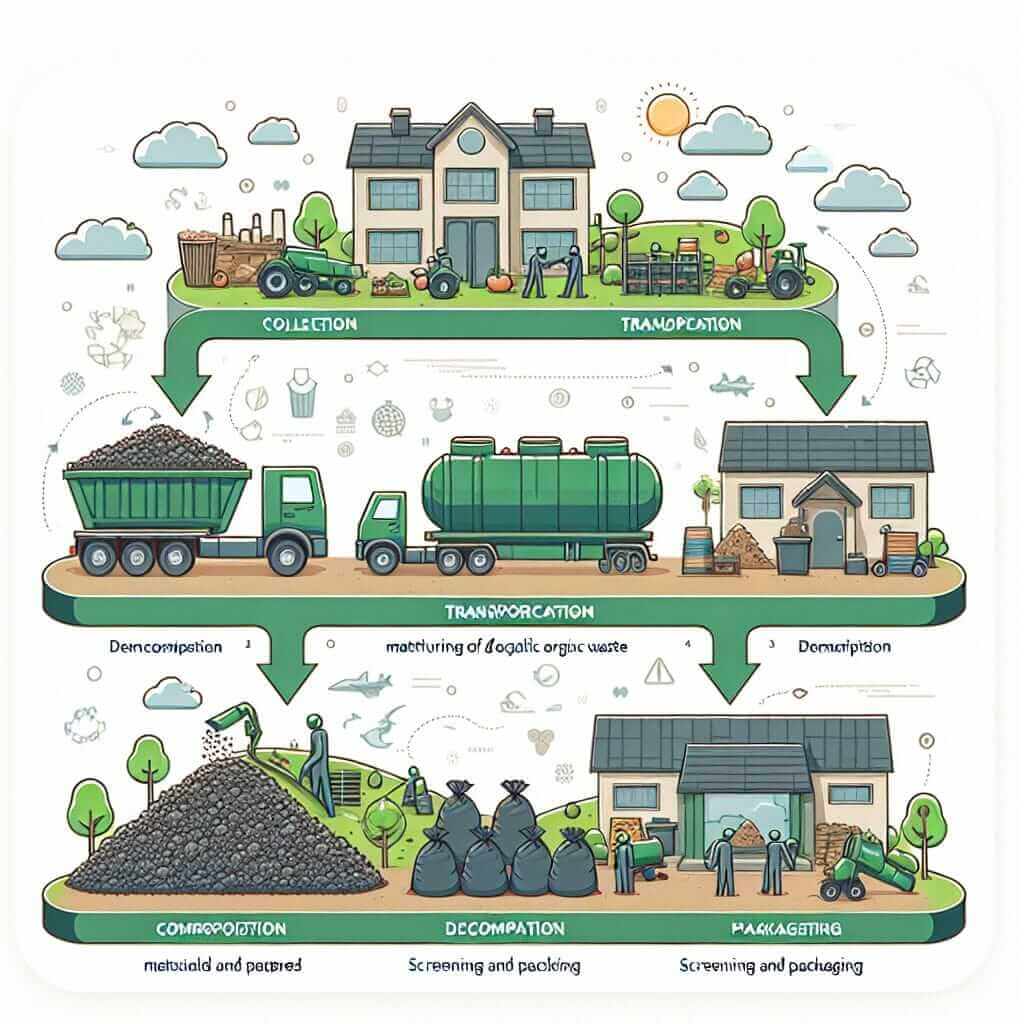As an IELTS instructor with over 20 years of experience, I often encounter students who feel overwhelmed by IELTS Writing Task 1, particularly when faced with processes. One such process that can appear daunting is “how organic waste is recycled into fertilizer.” However, fear not! This article will equip you with the essential knowledge and skills to tackle this topic confidently and effectively in your IELTS exam.
Understanding the Task
IELTS Writing Task 1 requires you to describe visual information, often in the form of a diagram, chart, or process. When presented with a process diagram illustrating the recycling of organic waste into fertilizer, your task is to provide a clear, accurate, and neutral description of each stage involved.
Breaking Down the Process
Step 1: Identifying the Key Stages
Begin by carefully examining the diagram and identifying the distinct stages involved in the process. For organic waste recycling, you might find stages like:
- Collection: This could involve households and businesses separating their organic waste from other garbage.
- Transportation: The collected waste is transported to a composting facility.
- Decomposition: At the facility, the organic material undergoes decomposition, often with the help of microorganisms.
- Maturation: The decomposed material, now compost, is left to mature and stabilize.
- Screening and Packaging: The final compost is screened to remove impurities and packaged for distribution.
Step 2: Using Sequencing Words and Connectors
To ensure your description is coherent and easy to follow, use appropriate sequencing words and connectors:
- To begin with: (For the first stage)
- Subsequently: (For the following stage)
- Following this: (For another stage)
- Simultaneously: (For stages happening at the same time)
- Finally: (For the last stage)
Step 3: Describing Each Stage Accurately
When describing each stage, use active voice and specific vocabulary related to waste management and composting. For example:
- “Initially, organic waste is collected separately from households and businesses.”
- “The collected waste is then transported to a composting facility, where it undergoes decomposition.”
- “During the decomposition process, microorganisms break down the organic matter, generating heat and releasing carbon dioxide.”
Illustrative Example:
Let’s examine a sample IELTS Task 1 question:
“The diagram below shows the process of recycling organic waste into fertilizer. Summarize the information by selecting and reporting the main features, and make comparisons where relevant.”

A possible answer could be:
“The provided diagram illustrates the five main stages involved in transforming organic waste into usable fertilizer. Initially, organic waste from households and businesses is collected separately. This waste is then transported to a specialized composting facility. At the facility, the organic material is placed in composting bins or piles, where it undergoes a decomposition process facilitated by microorganisms. This decomposition stage generates heat and releases carbon dioxide as byproducts. Following decomposition, the material, now in the form of compost, is left to mature and stabilize for a period of time. Finally, the mature compost is screened to remove any impurities and packaged for distribution as fertilizer.”
Tips for Success:
- Practice with Authentic Materials: Familiarize yourself with various process diagrams related to environmental topics.
- Expand your Vocabulary: Learn specific vocabulary related to waste management, recycling, and composting.
- Focus on Clarity and Accuracy: Prioritize clear and concise language to accurately describe the process.
- Proofread Carefully: Allocate time to review your work for any grammatical or spelling errors.
Remember, practice makes perfect! By following these steps and consistently practicing your writing skills, you can approach your IELTS Writing Task 1 with confidence and achieve the score you desire.